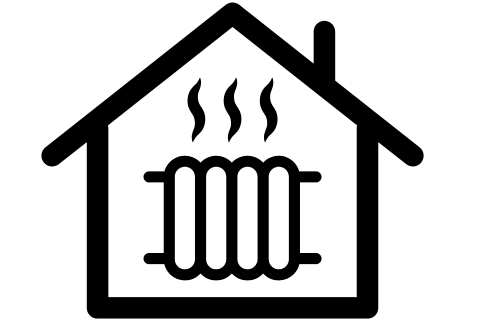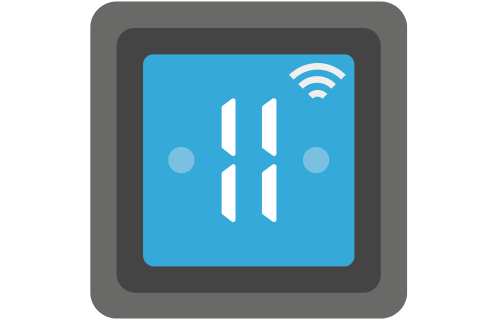Will My Boiler Work If The Water Is Off?
Are you concerned that shutting off your water supply could adversely affect my boiler? This is often due to a fear that your boiler will overheat, similar to attempting to boil water in your kettle without any water.
While there may be some effects, modern boilers are designed with safety features that mitigate risks, and different boiler types may respond uniquely to a lack of water supply. Your boiler is unlikely to sustain damage as it likely won’t work at all.
We’ll show you how to turn off your combi’s hot water supply and we can offer advice if you have concerns about your central heating system.
Inefficient boiler over 8 years old? Get a fixed price online here for a 94% efficient boiler now with 2 years extra warranty free worth £500 – Plus save your quote for an extra £100 off!

What should I do if there is a water leak?
First, turn off the water at the stopcock if there is a water leak in your home. This is the mains tap and if you have a burst pipe then it will stop the flow.
How do you find your stopcock
The stopcock, which is also a tap or valve, is located under your kitchen sink. They are not often turned off so they can be difficult to turn on. However, a strong neighbor or friend should be able and able handle it.
You should note that the stopcock may be in a different place or arrangement than you originally intended. Now is a good time for you to locate it so you can find it again.
What should you do if your stopcock isn’t working
If your stopcock is not located, you should look for another valve, perhaps outside your property. It is possible that the water supply might be shared with neighbours and you may need a key to open the cover.
How to fix a water leak
You can place a bucket or a washing-up bowl underneath the leak. If you want to be extra secure, turn off your boiler.
The leak might not be stopped immediately by cutting off the water supply. A tank or cylinder that is leaking may need to be emptied first, but it will not be constantly refilling itself.
Leaking cylinders or tanks will eventually drain to the point of the leak, and stop when the water is turned off.

What effect can turning the water off have on a boiler?
What type of central heating system are you using?
There are three types of boilers available, each providing hot water in slightly different ways.
- A combi boiler heats water on demand by passing mains water through a heat exchanger that contains freshly boiled water.
- A system boiler supplies mains water to a container. The container is heated by hot water being circulated to it from the system boiler much like a radiator. However, the hot water cylinder is subject to pressure from mains water. It draws hot water from its top and supplies cold water that is mains pressurised to the bottom. This is how pressure is maintained at the taps.
- A conventional boiler, which is a heat-only (conventional) boiler is very similar to a system boiler. However, the pressure in the hot water cylinder is not from mains water pressure. The water pressure is generated by gravity from cold water storage tanks. The cold water supply tank is located in the loft or at another high point of the house.

However, in all three systems, the water coming out of the tap is different from the water passing through the heat exchangers. The boiler heats water in a closed heating system.
It is continuously heated, cooled, and circulated when you choose, either by turning on your taps or switching your central heating thermostat to on. Your hot taps draw water from either your mains, a cylinder, or a loft tank.
These enclosed central heating systems, which heat radiators and exchange heat with your tap water, operate in a closed loop and will not be affected by your water supply being isolated as they will be full and closed off.
Turning the water off however will affect the water supply to the tanks, the cylinders, or taps, especially in combi boilers.

Is your boiler safe to shut off the water supply at the stopcock?
Boilers without a variety of sensors and controls might not be safe, and turning off the water supply could affect my boiler. If your boiler is turned on without water, it could cause damage.
The boilers heat exchanger could be damaged, but the heat exchanger of your radiators and cylinder would likely be unaffected.
How does turning off the main water supply affect combi boilers?
This small risk is unlikely to occur as long as your boiler works properly. If the mains pressure drops or the temperature rises, the combi boiler will shut down. This is because it doesn’t have enough cold water to heat up to send to your hot water tap.
What happens to system and heat-only boilers when water is cut off at the mains?
The system and heat-only boilers will heat up the radiators. You might get some hot water from the cylinder. However, this will evaporate quickly if there is no pressure or new water in the system.
The system will continue to run as though nothing happened unless you turn on the hot tap. The boiler will shut off if you turn on the tap. The risk of causing damage is very low, all things being equal.
Are my pipes at risk of freezing?
Sometimes, we hear people shutting off the water supply and leaving their homes empty for a few days in winter. They don’t want to return home to a burst water pipe or a burst main.
It is a good safety measure to shut off mains water when you go away in winter. However, if pipes freeze or burst before the stopcock, the water will still begin to leak once it thaws. This could be in your home.
Smart thermostat

It is safe to turn on your heating if you’re not home for longer than a few days. With the help of a smart thermometer, it can be helpful to keep your central heating on low while you are not there.
You can keep the house’s interior from becoming too cold and causing condensation. However, in extreme cold, you can stop the central heating from freezing. This is especially true if pipes are located near exterior walls or conservatories.
Water valve on boiler
The water valve serves as a component in regulating the flow of water into the boiler system. While the possibility of turning off the water supply while leaving the boiler operational, understanding the function of the water valve is important to know.
The water valve controls the entry of water into the boiler, facilitating heating and hot water functions. However, turning off the water supply while keeping the boiler running may lead to issues with water pressure, potential damage to the boiler, and safety concerns.
Preventing Damage to Your Boiler
Tips for maintaining boiler health when water is off
To prevent damage to your boiler when the water supply is turned off, it’s essential to take a few precautions. Here are some tips to help you maintain your boiler’s health:
- Check your boiler’s manual: Before turning off the water supply, consult your boiler’s manual. It often contains specific instructions for shutting off the water supply, ensuring you don’t inadvertently cause any damage.
- Turn off the boiler: If you’re planning to be away from home for an extended period, it’s a good idea to turn off the boiler. This prevents any potential damage that could occur if the boiler operates without a proper water supply.
- Drain the system: For longer absences, consider draining your central heating system. This step helps prevent any water left in the pipes from freezing, which can cause significant damage.
- Insulate exposed pipes: Insulating any exposed pipes, especially those in unheated areas like the garage or loft, can prevent them from freezing. Pipe insulation is a simple and effective way to protect your central heating system.
- Leave the heating on low: If you’re only going to be away for a short period, leaving the heating on low can keep the pipes from freezing. This small amount of heat can make a big difference in maintaining the integrity of your system boiler and central heating system.
Common risks and how to mitigate them
When the water supply is turned off, there are a few common risks to be aware of. Here’s how to mitigate them:
- Freezing pipes: Without a water supply, pipes can freeze, especially in colder weather. To prevent this, insulate any exposed pipes and consider leaving your heating on low. This keeps the temperature in your home above freezing, protecting your pipes and central heating system.
- Water pressure issues: Turning off the water supply can lead to a drop in water pressure, which might affect your boiler. Installing a pressure-reducing valve can help manage this issue, ensuring your boiler operates safely even when the water supply is off.
- Corrosion: When the water supply is off, there’s a risk of corrosion in the pipes and boiler. Installing a corrosion-inhibiting system can help protect your boiler and central heating system from this potential damage.
- Lime scale buildup: Without a consistent water supply, lime scale can build up in your boiler and pipes. A water softener can mitigate this risk, keeping your system boiler and hot water cylinder in good condition.
By following these tips and being aware of the common risks, you can help prevent damage to your boiler when the water supply is turned off. Taking these precautions ensures your central heating system remains in good working order, even during periods without water.
So, can you use your boiler if your water is turned off?
Technically yes you can, but we wouldn’t advise it. In winter if you have to then feel free to use your central heating to warm your radiators but we strongly suggest that you don’t try to use a mains shower or run a bath.
This could lead to further issues like needing a new boiler, a broken immersion heater in a hot water tank or low boiler pressure which can’t be topped up till the water is flowing again.
